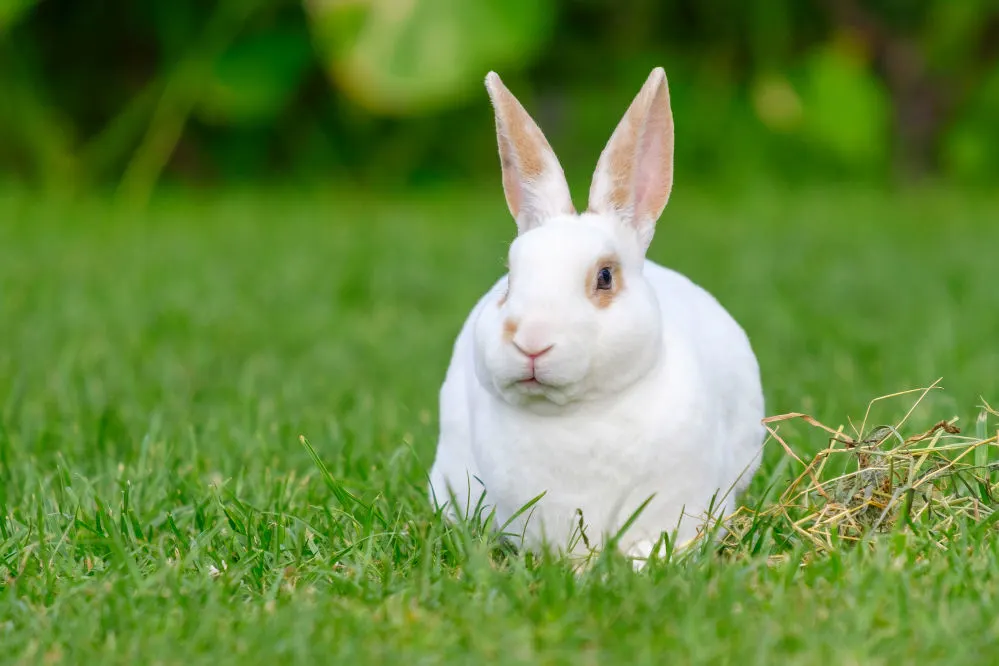For humans, bread seems like the most basic of foods. Nearly every culture on the planet enjoys some sort of bread in one form or another. When humans started adopting pets, it seemed natural to feed them the same things humans were eating.
While we know feeding cooked food to your bun-bun isn’t a great idea, the question still remains, can a rabbit eat bread?
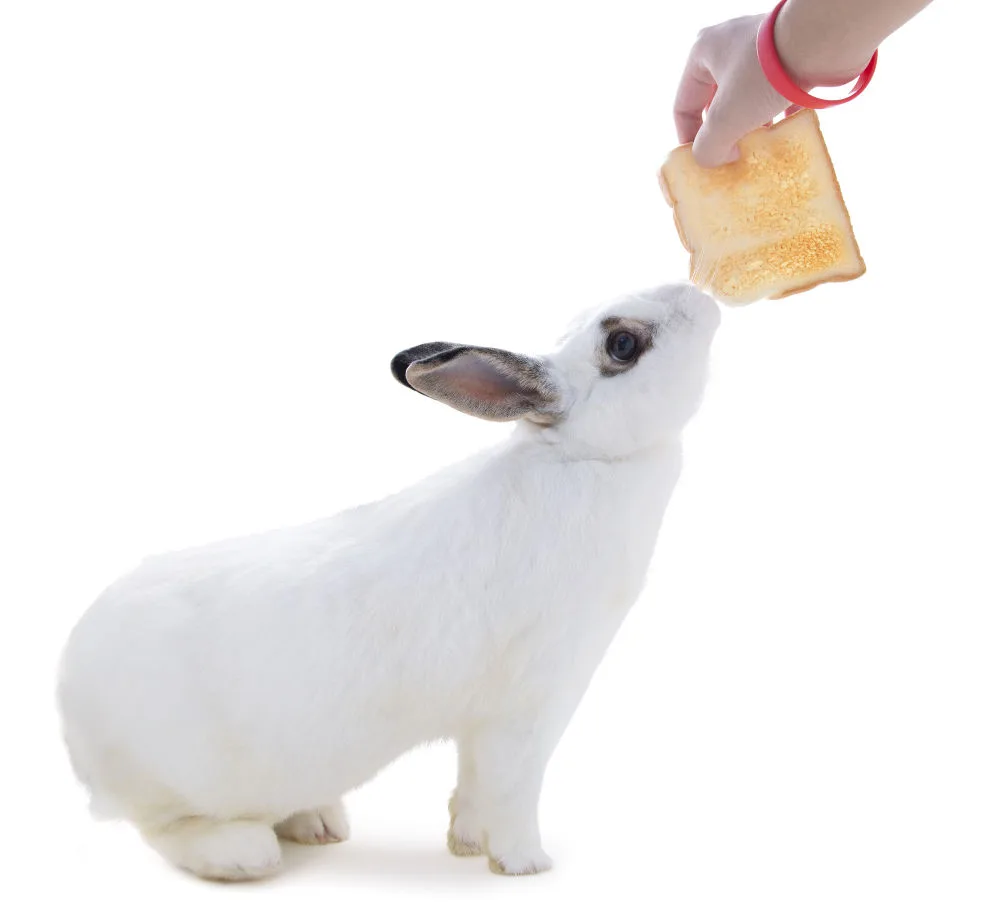
Bread is not a natural food and can be bad for a rabbit’s health. It’s a baked good using a combination of processed wheat and sugars, among other things. Therefore, it’s not a natural fit for most of our pets. In the case of indoor rabbits, this is true as well.
So it’s time to take a quick dive into why this is so and the potential issues and digestive problems that might occur should your rabbit consume bread.
What to know about a rabbit’s diet
Rabbits are grazers, meaning they will naturally pick up and taste anything edible that happens to be in their vicinity. Unfortunately, that includes items like bread, which is unhealthy for them.
A typical rabbit diet is high in plant fiber. The standard rabbit diet consists of hay, certain types of leafy greens, and certain kinds of vegetables in small amounts (romaine lettuce and carrots, for example). Items like strawberries can be a nice treat as rabbits can also eat fresh, raw fruit and veg.
While the limited complex carbohydrates in veg and fruits are perfectly fine in small amounts, the refined carbs in most bread (especially white bread) will cause your rabbit to become overweight. On the whole, though, that would be the least of its problems. Bread can also cause problematic gastrointestinal conditions and digestive issues.
But the worst issue relates to the other ingredients in bread, including brown bread and event whole grain. Most types of bread also contain eggs and milk. Both of these have animal protein, which a rabbit cannot digest. While some breads are gluten or animal-protein-free, this still does not mean they are suitable for your fluffball.
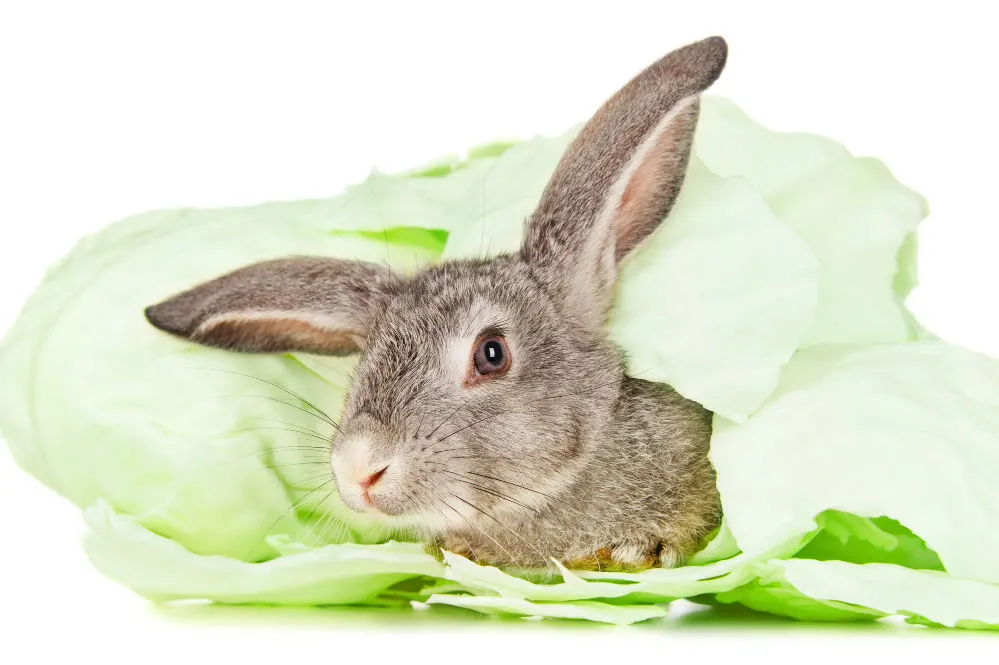
What do wild rabbits eat?
The most straightforward advice to follow when it comes to feeding a rabbit is to stick with lots of fresh hay and leafy vegetables.
Your pet is also lucky enough to be catered for by some pet food manufacturers through tasty formulated rabbit pellets specially created for bunnies. A domestic rabbit should eat mostly fresh hay (roughly 80% of their diet) and a balanced proportion of fresh veg to pellet food. About 10% of its diet may consist of raw veg or fruit – think of these as healthy treats.
Recommended fresh vegetables and green treats include:
- Watercress
- Carrot
- Broccoli greens
- Beet greens
Can baby rabbits eat bread?
Bread can be particularly dangerous for baby rabbits. They may not have systems strong enough to counter the ill effects. It’s best to leave baby rabbits with their mother’s milk until they are weaned off before introducing solid foods.
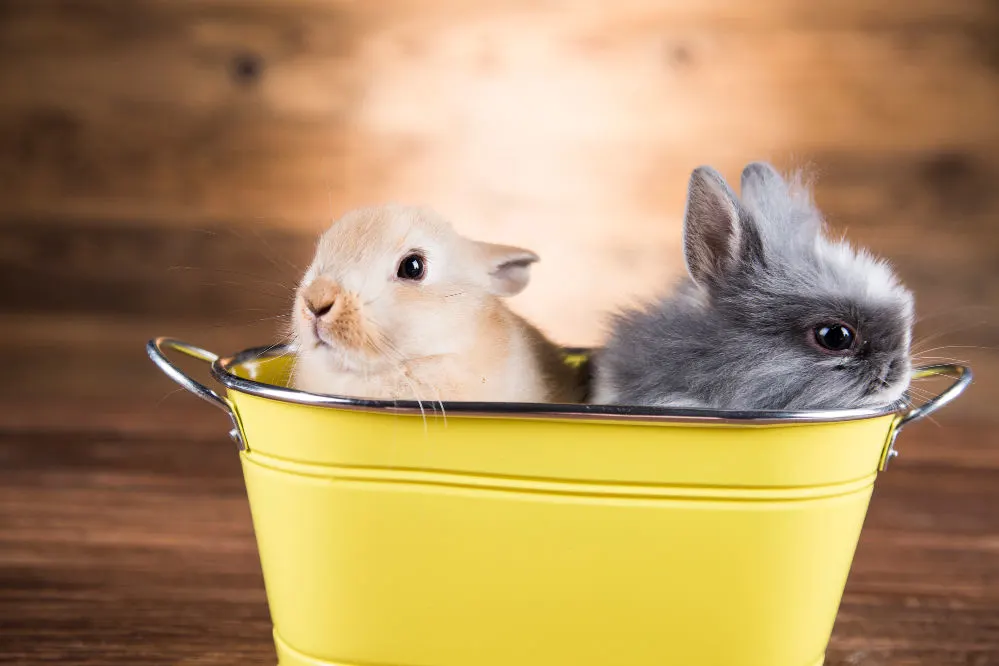
After that, hay and young rabbit pellets are the safest bet, with the occasional leafy green added to the mix. Some raw vegetables and fruit can be introduced from seven to eight months old, though they should not be a significant part of a rabbit’s diet.
Can adult rabbits eat bread?
The short answer is no; a rabbit should not eat bread. They are capable of and willing to munch it if it is found lying about, but that means you should take extra care not to leave bread where your rabbit can get to it.
In the wild, rabbits eat fresh hay, vegetables, and occasionally fruits. As a processed food, bread is very high in carbs and sugars, which a rabbit is not biologically suited for. Even if it feels like a convenient snack for your bunny, do not feed it from your sandwich prep table.
Bread will potentially cause problems relating to your rabbit’s GI stasis. This could lead to some serious gastrointestinal issues, in turn. So, it’s best to avoid this possibility altogether.
Bread contains refined or bad carbohydrates
In recent times, scientists have realized that most commercially available bread is somewhat unhealthy for humans because of the refined carbohydrates it contains. At the very least, it causes weight gain. It also causes a spike in blood sugar due to its high glycemic index.
Eating bread can sometimes lead to chemical imbalances in the digestive tract. Conditions like dysbiosis can also occur in rabbits.
As a result, the rabbit may suffer from a compromised immune system, bloating stomach blockages, and constipation.
The bread may contain traces of other toxic foods
If your bread was part of a sandwich, it could contain traces of other toppings or foods that are toxic for pet rabbits. Many sandwiches have onion, garlic, or avocado, for example. It can be dangerous or deadly if a rabbit eats enough of these items — even as part of a piece of bread.
How much bread can a rabbit eat?
Here’s a simple rule to follow to make your life and your rabbit’s life a little easier: Do not offer your rabbit bread if you can help it. All breeds of rabbits will likely try a taste of anything edible if offered. If they like it, they will continue to eat it. They may not instinctively discern whether something is suitably edible for them or not.
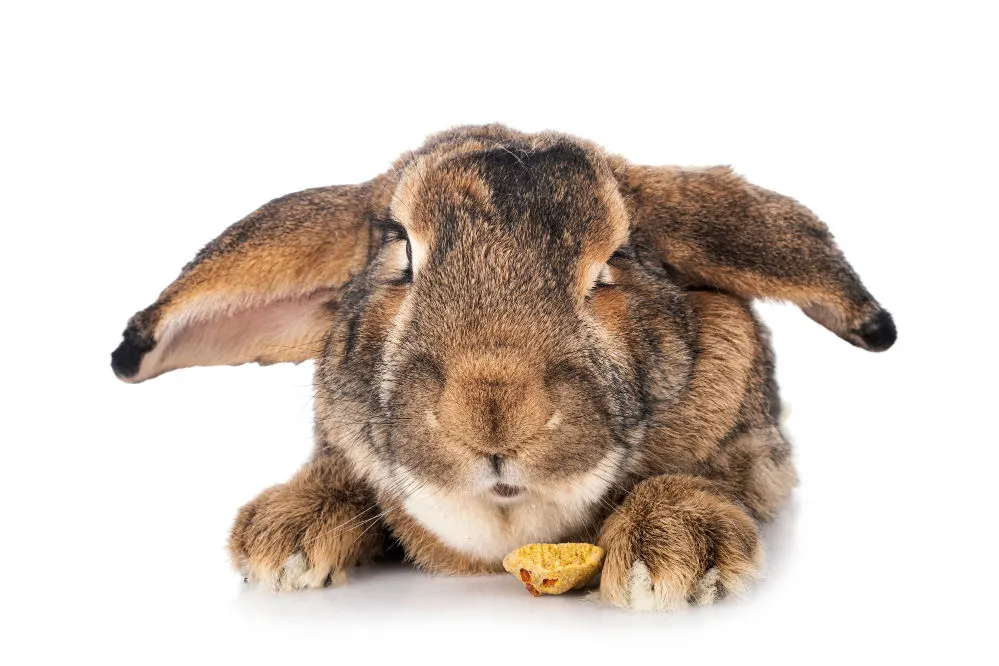
Now, accidents happen. Sometimes an unwitting friend may offer your rabbit a bit of bread. It may even find a dropped piece of crust if it roams freely about your house.
Given what we now know about bread and rabbits, you may want to see a vet if you suspect your rabbit has eaten a small amount of bread accidentally. First of all, do not panic.
Your furry friend may be able to handle a tiny amount of accidentally consumed bread, with or without some resulting discomfort. Still, you must closely monitor your rabbit for a day or two and perhaps note whether its poop is unusual. Take note of runny stool, for example.
Read this guide on what rabbit poop should look like if you’re uncertain. See a vet if it seems unusual or if your rabbit is uncomfortable.
The myth of stale bread crusts
Through the years, some common advice given (incorrectly) was that stale bread and bread crusts could assist with helping keep a rabbit’s teeth healthy. Thankfully, most rabbit owners now know this advice is ill-advised and potentially dangerous. Myth busted!
Summary: Avoid feeding bread to your rabbit
It is best to entirely avoid feeding your rabbit any bread. There is little to no nutritional value or health benefits for your bunny, and there may be negative consequences if eaten. By extension, avoid all forms of cooked or baked food for your rabbit in general if you want to prevent health issues down the line.
A pure hay (including timothy hay), pellet, and leafy green-based diet will be the healthiest option that provides all the nutrition required for a happy bunny rabbit’s digestive system. With all that’s said and done, there are some vegetables that aren’t ideal for your bunny either: read more about if your rabbit can have squash.
Steph Dyson is a travel journalist by trade but a lover of all small pets. She’s been a pet mum to everything from gerbils to guinea pigs, rabbits to hamsters, and fish to dogs of all shapes and sizes. She wants to share her years of experience with small pets and make Small Pet Guides the go-to website for pet owners seeking information and care advice.

